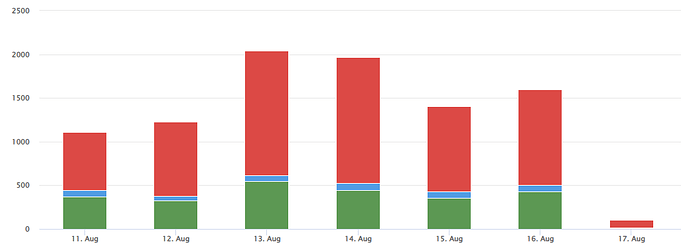At only a week into the diet, it is not likely, though it is certainly a possibility. Keto-adaptation (fat-adaptation) generally takes six to eight weeks, but there are people who manage it in less time, and some for whom it takes longer. You may be one of the lucky ones.
It is true that the liver makes an abundance of ketone bodies at first, and then does a better job of matching production to demand, once the skeletal muscles become fat-adapted. Also, the kidneys independently get better at filtering ketone bodies out of the urine and back into the blood stream.
What is considered the most accurate measure of ketone production is serum β-hydroxybutyrate (one of the three ketone bodies produced in the liver), which technically should be above 0.5 mmol/dL for nutritional ketosis.
The test strips were designed to give Type I diabetics an early warning that they might not be handling their insulin correctly and are therefore at risk for diabetic ketoacidosis. For that purpose, they don’t need to be all that accurate, just accurate enough to show that ketones are being spilled into the urine at a rate that is of concern. (If you are becoming ketoacidotic, you want enough warning to get to the hospital before symptoms become manifest. And if your pancreas is producing any insulin at all, then diabetic ketoacidosis is not a concern.)
But no home measurement device is all that accurate. One of the best tests for ketosis I have read about was posted by a wag on these forums: You know you are in ketosis when (1) you are eating less than 20 g of carbohydrate a day, and (2) you are still breathing in and out.
Lastly, if you are eating a ketogenic diet for the sake of fat loss, no one has ever demonstrated a correlation between ketone levels and rate of fat loss. If you are eating a ketogenic diet for metabolic health, it is possible for that to improve without high levels of ketones. If you want a high ketone level for the sake of brain cognition or some other brain problem, then it might be worthwhile to take a ketone ester supplement.
P.S.—For any newcomer reading this thread, it is easy to avoid the keto “flu” by slightly increasing salt intake and drinking to thirst. A cup or two of bone broth a day will prevent the keto “flu.”




